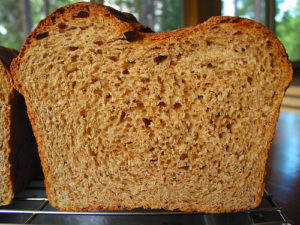
With a prevalence of obesity in this country, where complications of diabetes and other health ailments occur, as a result, people look for ways to control their dietary habits and are more inclined to focus on dietary items that are raw and less refined.
Among these natural healthy food options, whole grains top the list in terms of popularity. However, many experts suggest that there is still a long way to go.
A worrying statistic indicates that nearly 60% of calorie consumption is from ultra-processed food; that is, extra ingredients that are placed into the food in order to make it taste better and sometimes “to disguise undesirable qualities of the final product,” as per a study by Carlos Augusto Monteiro, a professor in the Department of Nutrition, School of Public Health at the University of São Paulo in Brazil. These foods contain high amounts of sugars, saturated fat, and sodium, which can present such medical dangers as obesity, heart disease, diabetes, high blood pressure, and high cholesterol.
Health risks of refined grain
 Many of us have become overly reliant on ready-made food items, such as products that are processed with refined wheat, rice, and barley. Flour, for example, is crushed into fine powders, which then form the basis for many types of bread and a large variety of processed foods, from cereals, crackers, and pizza dough to cookies and cakes.
Many of us have become overly reliant on ready-made food items, such as products that are processed with refined wheat, rice, and barley. Flour, for example, is crushed into fine powders, which then form the basis for many types of bread and a large variety of processed foods, from cereals, crackers, and pizza dough to cookies and cakes.
Apart from having less nutritional value, refined grains also pose significant health risks to the people consuming them on a daily basis.
Following is a list of just some of the health hazards that can be acquired when eating refined products.
Accumulation of abdominal fat leading to heart problems
Refined grain, as the main source of getting nutritional values in your diet, accumulates layers of adipose tissues (fat) around your organs. It results in inflated waste along with complications of heart health.
Development of atherosclerosis
Atherosclerosis is the condition in which artery walls get thickened. Thick arteries can result in hypertension and in worse conditions culminates in heart attacks. It has been found out that consumption of refined grains for a long time can lead to this ailment.
Diabetic conditions
Due to its lack of fiber, minerals, and other micronutrients, refined grains can make the human body more vulnerable to acquiring diabetes, especially in people with a genetic history of the disease.
How Do We Know Which Foods are Ultra-Processed?
The decision to buy non-processed foods can be confusing if you don’t know what to look for. Foods with the whole grain stamp label on their packaging indicate that the bran, germ, and endosperm are still present in the grain.
Foods with the whole grain stamp label on their packaging indicate that the bran, germ, and endosperm are still present in the grain.
Read the label. If it says the food contains artificial flavors, colors, and preservatives, there is not much doubt they are processed with ingredients that can be harmful to your health.
Conversely, foods that still contain the bran, germ, and endosperm, and subsequently, the nutrients that accompany them will have a label on their packaging indicating that the food within contains whole grains.
Those foods that have been processed organically will have a clear label indicating this.
What are whole grains?
![]() Simply put, whole grains are natural grains present in their untreated form. They are edible plant seeds usually known as the term ‘kernel’. The grain kernel consists of three distinctive edible parts that are enclosed in a shell, natural protection for grains from excessive sunlight, insects, and crop diseases. Let’s break down the three individual parts of whole grains to understand the nutrients within them.
Simply put, whole grains are natural grains present in their untreated form. They are edible plant seeds usually known as the term ‘kernel’. The grain kernel consists of three distinctive edible parts that are enclosed in a shell, natural protection for grains from excessive sunlight, insects, and crop diseases. Let’s break down the three individual parts of whole grains to understand the nutrients within them.
Bran
Bran is the outermost layer of the kernel and consists of many layers.
Nutritional Benefit: It is full of fiber, vitamin B, and vital antioxidants.
Germ
Germ is the nucleus of the kernel and acts as the plant’s embryo. Nutritional Benefit: The germ of the whole grain is loaded with proteins, healthy fats, and micronutrients in the form of minerals and vitamins.
Endosperm
Endosperm is the area of the kernel surrounding the germ. It provides the plant’s energy through its abundance of nutrients.
Nutritional Benefit: Endosperm contains almost all of the carbohydrates of the kernel, with a portion of proteins and some micronutrients.
Whole grain is more nutritious because the germ and bran, which is part of the kernel are not destroyed and excluded in the process refinement, but make sure you select 100% whole wheat products, (whether whole wheat, which contains all the nutrients in the kernel or whole grains which also contains the entire kernel but has additional nutrients)’
To get yourself more acquainted with the use of whole grains, the following are some of its advantages:

Improved digestion
We all know that how much of our adult population is bugged with digestive issues. The rich fiber content present in whole grains improves bowel movement which means you don’t have to rely on laxatives. The presence of lactic acid in whole grains helps the growth of good bacteria in the large intestine. The presence of good bacteria in the intestine helps in rapid nutrient absorptions and a strengthened immune system.
Instills the feeling of satiation
Whole grains are famous to keep your appetite low with their satiating effect. It takes longer for the digestive system to digest whole grains which means your brain will not signal you for untimely eating. This innate quality of whole grain can help people who are striving to lose weight.
Blood sugar regulator
Whole grain helps in controlling the spiked-up levels of blood sugar. With its low glycemic index as compared to refined grains, less glucose is absorbed into the bloodstream, helping in maintaining blood glucose levels.
Whole grains are also proved to be beneficial in reducing the inflammation within the body and medical sciences tell us that inflammation is the root cause of many chronic diseases. Antioxidants present in whole grains can reduce the risk of different types of cancers. In general, increasing the number of whole grains in our daily diet can help ensure a healthy lifestyle.
